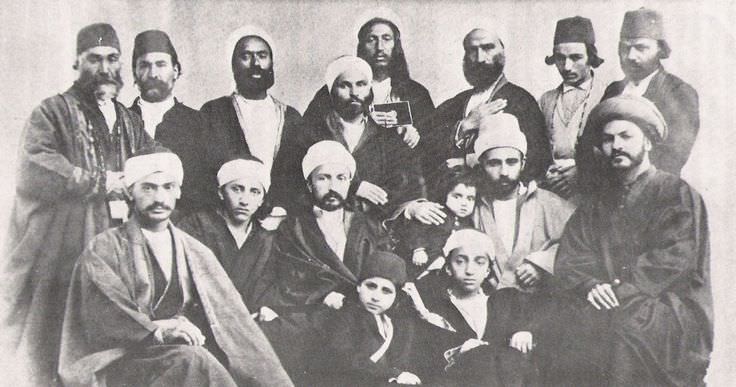Baha’u’llah, a figure of monumental significance in the narrative of global spirituality, is revered as the prophet-founder of the Bahá’í Faith. His teachings proffer a refreshing paradigm shift in understanding the essence of humanity, the interconnectedness of life, and the nature of divinity. To truly grasp the impact of Baha’u’llah’s message, one must delve into the intricacies of his philosophy, which resonates deeply in an era often fraught with discord and misunderstanding.
At the heart of Baha’u’llah’s revelation lies the principle of unity. He emphasized the oneness of humankind, an age-old concept that is increasingly vital in our diversifying world. Baha’u’llah articulated that all human beings, regardless of race, nationality, or creed, share a singular origin. This fundamental belief encourages individuals to transcend parochial affiliations and embrace global citizenship. Through the lens of unity, Baha’u’llah invites humanity to foster equitable relationships, thereby cultivating a society founded on mutual respect and collaboration.
Another compelling aspect of Baha’u’llah’s teachings is his acknowledgment of the inherent nobility of every individual. He asserted that each person possesses innate virtues and potential, demanding an egalitarian approach toward education and personal development. The pulsating core of Baha’i philosophy is the idea that individuals should strive to unveil their higher selves — a quest that entails intellectual, spiritual, and ethical advancement. This pursuit not only enriches individual lives but, when embraced collectively, elevates civilization as a whole.
Furthermore, Baha’u’llah introduced the concept of progressive revelation, a doctrine that posits that divine guidance is not static but evolves to meet the changing needs of humanity. Such a notion counters fixed and dogmatic religious interpretations, presenting a fluid understanding of faith. This aspect encourages followers to engage actively with their beliefs and to reassess traditional principles in light of contemporary insights and challenges. Baha’u’llah’s teachings invoke curiosity, as they beckon individuals to explore spiritual truths and personal interpretations, fostering an environment ripe for inquiry and dialogue.
In Baha’u’llah’s vision, the attainment of peace is intricately linked to the establishment of justice. He elucidated that without fairness and equity, true tranquility cannot be realized. This principle serves as a fundamental precept for social sustainability, urging societies to confront injustices and to rectify disparities. By advocating for universal education, elimination of extremes of wealth and poverty, and the promotion of collective well-being, Baha’u’llah paints a picture of a harmonious society that every individual can contribute to, thus opening pathways to both individual and communal happiness.
Baha’u’llah’s writings also underscore the importance of the power of prayers and supplication. He extolled the virtues of devotion and the necessity of connecting with the divine to seek guidance and strength. In an increasingly fragmented world, the practice of prayer not only serves as a refuge but also as a means to cultivate inner peace and resilience. It engenders a profound sense of connection with the divine, which can transcend the mundane tribulations of everyday life.
Moreover, Baha’u’llah placed significant emphasis on the role of service to humanity. He taught that true fulfillment arises from selfless acts of kindness and compassion. By dedicating one’s life to the betterment of society, individuals realize their potential and contribute to a greater cause. This principle galvanizes a sense of responsibility, nudging individuals to remove barriers of separation and to engage actively in benevolent endeavors. The act of serving others becomes a vehicle through which one can manifest the teachings of Baha’u’llah, thereby embodying the very essence of his principles.
The integration of science and religion is yet another salient feature of Baha’u’llah’s doctrines. He posited that both realms are essential in understanding the world and our purpose within it. The Bahá’í Faith promotes the harmony of faith and reason, advocating for the pursuit of knowledge within scientific disciplines while simultaneously enriching spiritual understanding. This symbiotic relationship asserts that advancements in one sector can catalyze growth in another, leading to a holistic comprehension of existence.
Intriguingly, Baha’u’llah’s teachings extend beyond personal spirituality. They invite a critical examination of societal structures and norms, urging humanity to cultivate virtues that transcend traditional moral frameworks. Baha’u’llah beckons individuals to become proactive agents of change, challenging the status quo while nurturing the well-being of all. This call to action is especially relevant in contemporary discourse, where social justice, equity, and human rights take center stage.
Ultimately, Baha’u’llah stands as a beacon of light, illuminating the path toward a unified humanity. His teachings resonate deeply, inviting reflection, inquiry, and action. The principles he articulated remain profound, enveloping diverse themes that intrigue the seeker of truth. By embracing the core tenets of unity, justice, service, and the harmonious interplay of faith and reason, individuals can partake in the momentous journey of awakening to a higher purpose and fostering a legacy of love and compassion.
In conclusion, Baha’u’llah’s life and teachings represent a transformative catalyst for personal and societal evolution. His profound insights offer a framework upon which a new faith can be cultivated—one that aspires to bridge divides, celebrate diversity, and engender peace. As the world grapples with existential challenges, the teachings of Baha’u’llah promise to inspire a paradigm shift in perspective, encouraging curiosity and forging connections among all humanity.
